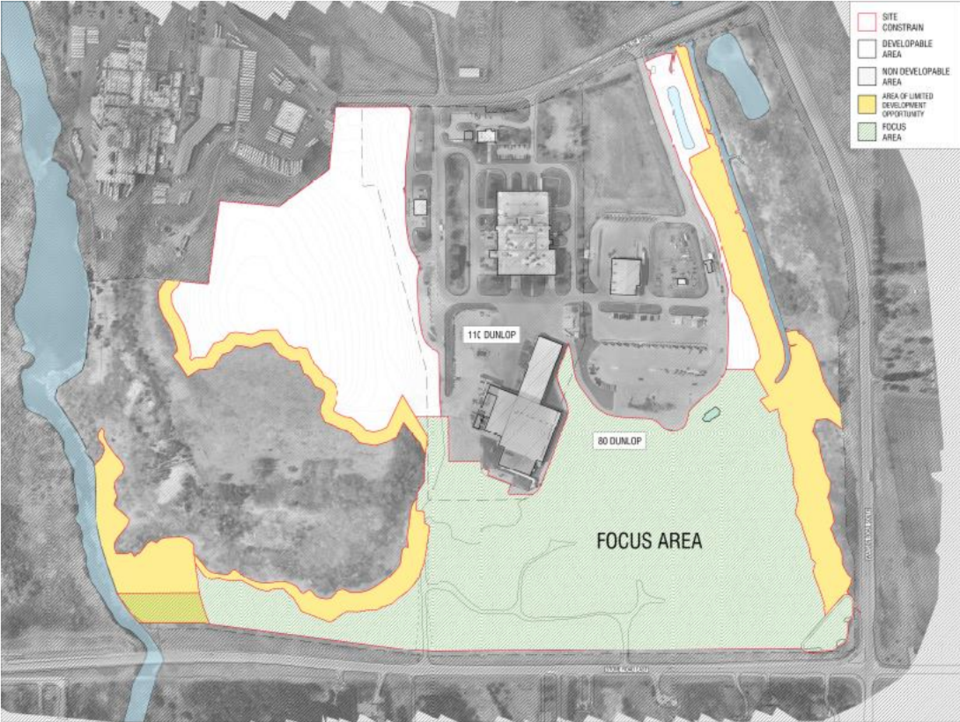If you’ve been following the back-and-forth around the proposed construction of an operations campus for the City of Guelph, you are a credit to municipal discourse because I sit at every one of these meetings and I’ve had a Fozzie of a bear of a time keeping up with the intricacies.
Now, the last thing in the world you want to think is that our municipal staff are acting recklessly with a project that could end up costing one-quarter of a billion dollars, but how can we not be concerned? Especially after the level of indecisiveness demonstrated at this week’s Committee of the Whole meeting.
The whole thing started kind of dodgy. The first public meeting where the City Operations Facilities Needs Assessment was before council was October 21, 2019. That date sound familiar?
If you’re the politically-minded sort that regularly reads this space, you will probably remember that it was Federal election day. As Elections Canada workers were counting votes, staff was presenting council with its recital of under-performing real estate assets and then talked about the need for putting all city operations in one place on Dunlop Road.
I don’t want to retrace the journey from there to here over the last three years like one of those Indiana Jones maps, but let’s just say that it’s not a straight line. Why? Perhaps staff reticence to drop another great big infrastructure bomb on the public. We’ve got the South End Community Centre, and the Baker District Redevelopment, and each of those is worth tens of millions of dollars each.
What is it they say about three being a crowd?
Perhaps that’s why there’s been a lot of council skepticism about the operations campus project since the outset. Unlike both the SECC and main library project, there was a distinct lack of a business case or other back up documents aside from the asset review, which showed that many of the operations facilities at various locations around town were at, or near, the end of their lifecycle.
Still, a few months after that first meeting it was announced that Guelph had successfully won funding from the Federal government to electrify our transit system, and along with that there was money to build a new transit building that would have the proper infrastructure to charge several electric buses at one time.
That was now three years ago. Then-Environment Minister Catherine McKenna came to town and it was a whole to-do with brass as far as the eye can see (in the bus barn on Watson Road). It was kind of a big deal, but looking back, it’s starting to feel like we put the cart before the horse, especially as the electric buses have now started to arrive.
Now I don’t want to damn this project before it begins, but I’m starting to get some bad vibes with how this is going down. The kind of vibes that, looking back, we should have had with previous controversial construction projects.
Let’s us conjure the spirt of Urbacon and remember that a judge noted friction between the city and the contractor caused by multiple requests for changes mid-project, and that led to a wrongful termination and a $6.6 million judgment. That was another instance where the city was trying to consolidate services from several locations into one new facility.
I’m also reminded of the recently-completed Guelph police headquarters renovations, which started as a $13-million project that later jumped up to a $34-million project, and even two years before a shovel was put in the ground consultants were warning about potential delays and cost overruns in a board report.
Now I’ve mentioned before that we often mischaracterized these instances, and that they’re the exception and not the rule because the vast majority of city infrastructure projects finish on time and on budget, but I think we can draw a connection between success and the simplicity of the project.
Building a parkade or a road are pretty functionally straightforward, but what picture forms in your mind when you think “operations campus.” City staff are the ones trying to get an operations campus built and even they’re having trouble trying to envision the finished project, and if you’re worried about them getting it wrong, that’s okay, that’s how oversight works!
Except oversight hasn’t worked. Staff assurances that the operations campus is a Tier 1 project are hollow because one report in 2020 said that the police headquarters was on budget and near completion despite being more than a year overdue. One report later, the contractor had been fired and the project was in trouble, and then it was another two years before it was finally finished.
So candor is another problem, and it was in startling short supply at committee as staff pivoted and dodged to avoid putting a price tag to any aspect of the project.
I can understand that because we get hung up on the numbers and not the value, but it’s also not unreasonable for councillors to ask for a number before committing to anything, especially since the mayor and council will be hung for the screw ups long before anyone at staff level will.
The kicker is that I don’t want this project to get screwed up. Our electrified transit fleet should be a universal success with an improved experience for riders, less emissions, vehicles that aren’t subject to as much wear and tear, incredible fuel savings, and then there are the bragging rights, of course.
No one wants a bunch of electric buses and nowhere to plug them, so we have to get this right. Preferably, the first time.
